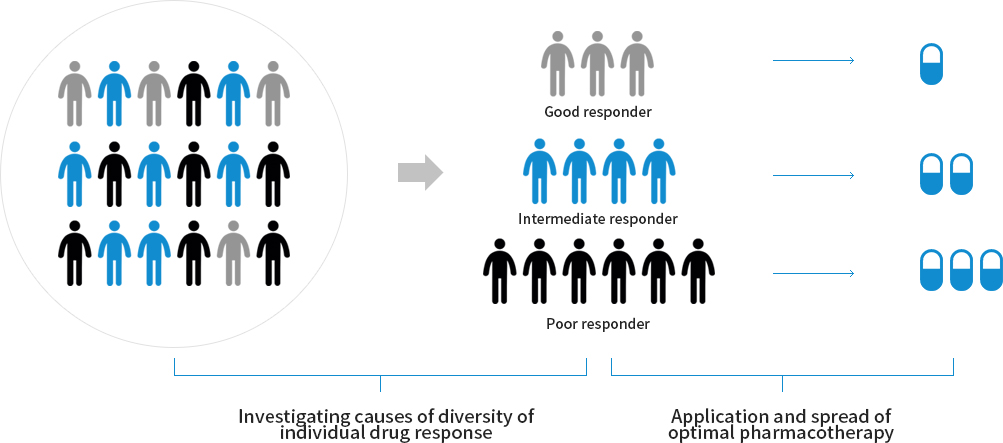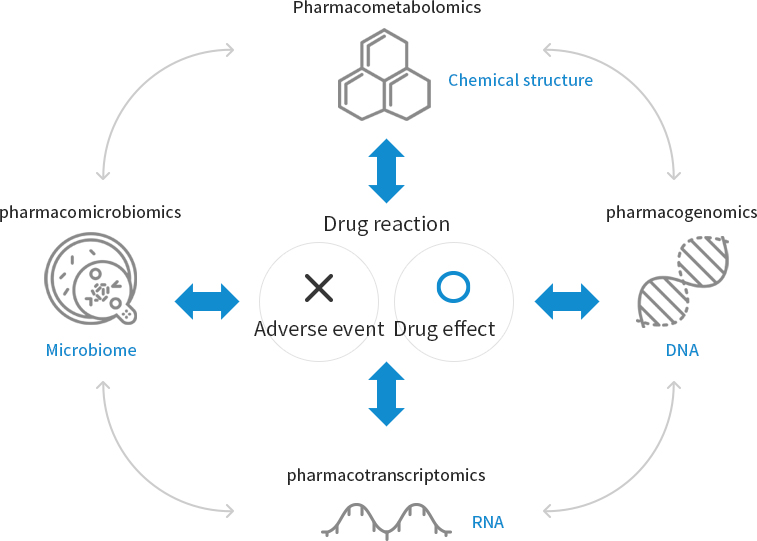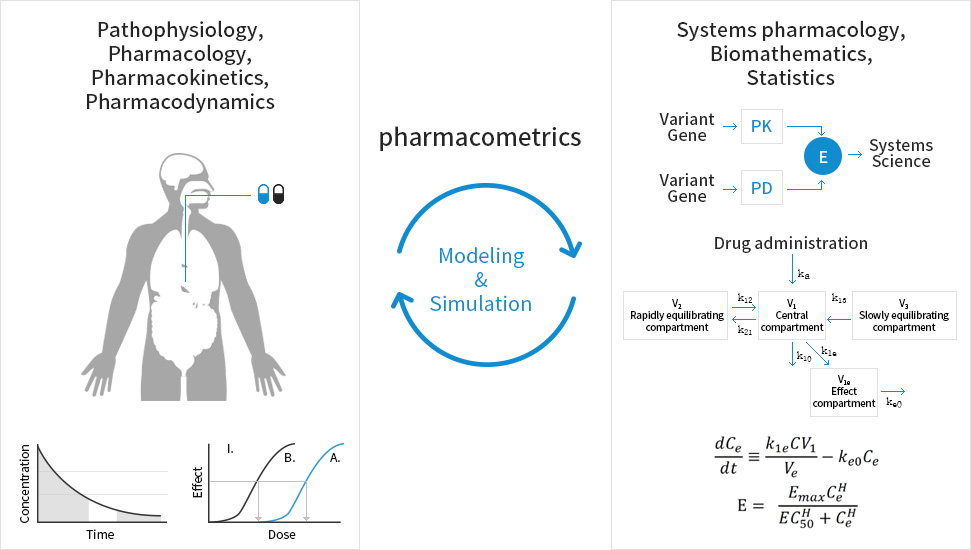RESEARCH
https://cpt.snu.ac.kr/en/Research/ResearchArea/OptimizingPharmacotherapy
URL COPY
The department of Clinical Pharmacology and Therapeutics in college of Medicine of Seoul National University (SNUCPT) designs, implements, and evaluates studies for applying the personalized pharmacotherapy to clinical practice by searching for the causes of individual variation in responses to drugs. Based on pharmacokinetic/pharmacodynamic studies, SNUCPT makes efforts to create, apply, and spread new knowledges which are converged in various fields such as multi-omics including pharmacogenomics, pharmacometabolomics, researches of quantitative pharmacometrics, personalized pharmacotherapy development, real-world data utilization, radiopharmacology.

- Pharmaco-omics research
-
- We are trying to understand individual variations of responses to drugs by analyzing genome, transcriptomes, metabolomes, microbiomes through multiple omics approach.
- - Pharmacogenomics study: Researches of individual variations of responses to drugs according to genotype
- - Pharmacotranscriptomics study: Research correlation between changes in genomic transcription products in the human body and individual variations of responses to drugs
- - Pharmacometabolomics study: Research correlation between the change of metabolites which are the final product of gene regulation, and individual variations in responses to drugs
- - Pharmacomicrobiomics study: Research individual drug responses according to intestinal microbial composition
- Based on these, we are promoting for developing biomarkers to predict and assess of individual variations in responses to drugs.

- Pharmacometrics study
-
- It is mathematical and statistical study to identify and predict the relationship between pharmacokinetic/pharmacodynamic, biomarkers, and responses. We are using this information to develop the appropriate dosage regimen in each patient.
- - Population approach study: Evaluate the relationship between differences of drug concentration and drug responses the target population to be treated with the drug and causes of the difference in responses. Capable of analyzing data from sparse data or unbalanced designs
- - Physiologically-based approach study: The research to construct each tissue and organ constituting the body and systematically analyze the kinetics of drugs in the body through blood flow. Physico-chemical properties of drugs and biologic variables affecting pharmacokinetics/pharmacodynamics are reflected in the model, and phenomena are mechanistically analyzed. Useful studies to predict human pharmacokinetics/pharmacodynamics from non-clinical data, drug interactions, and pharmacokinetics/pharmacodynamics in special populations.

- Study the development of personalized pharmacotherapy
-
- We are continuing our researches to apply the personalized pharmacotherapy to practical clinical treatment through developing new TDM methods and treatment guideline according to pharmacogenomic information.
- Study utilizing Real-world data
-
- We find out the causative factor of individual variations in responses to drugs using real-world data including EMR, public database and new drug adverse effects which have not been identified through previous clinical researches.
- Radioactive pharmacologic study
-
- We conduct study using radioactive marker to identify pharmacokinetic/pharmacodynamic correlations, tissue distribution, and absolute bioavailability of drug which were difficult to identify by using previous methods.
